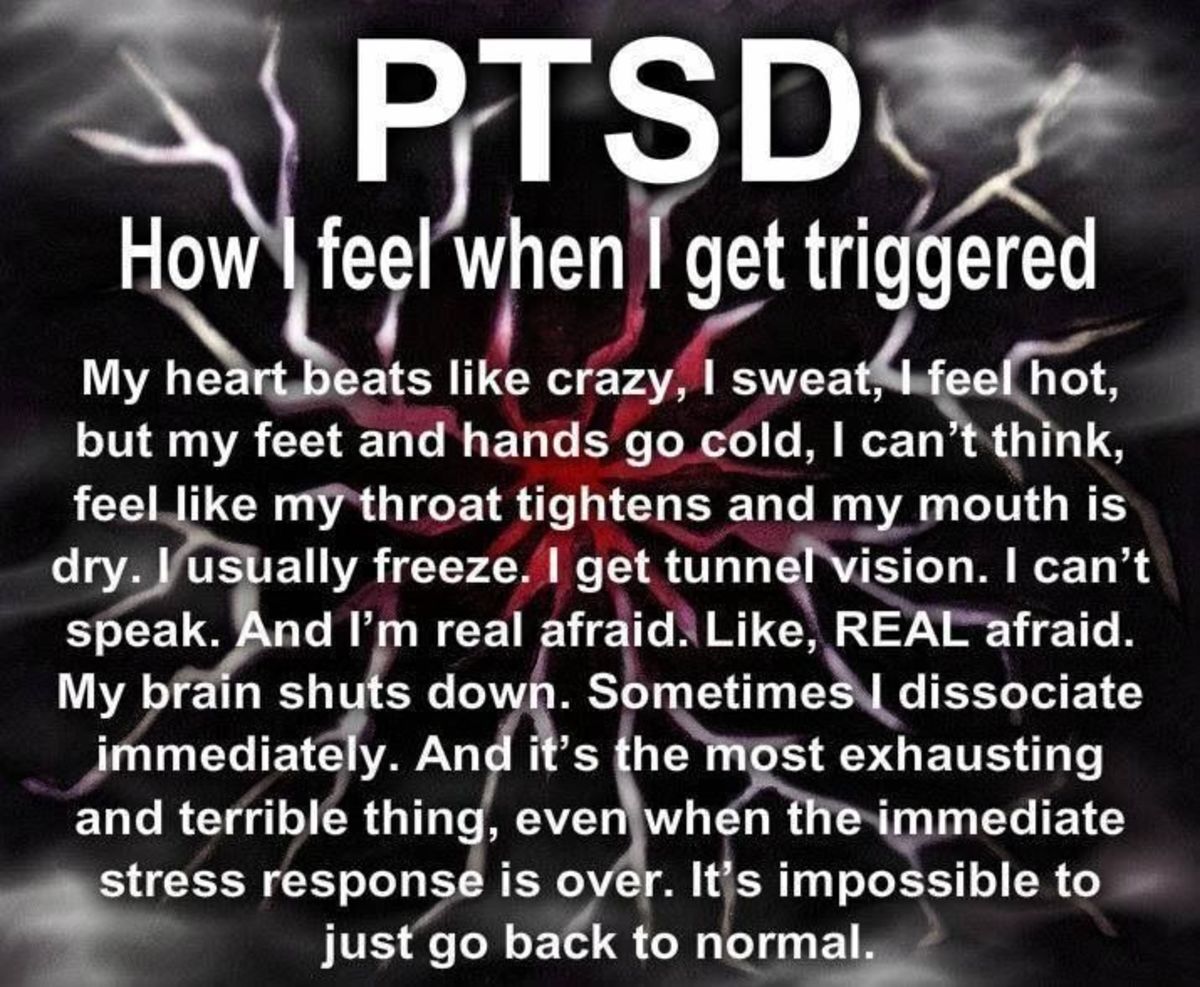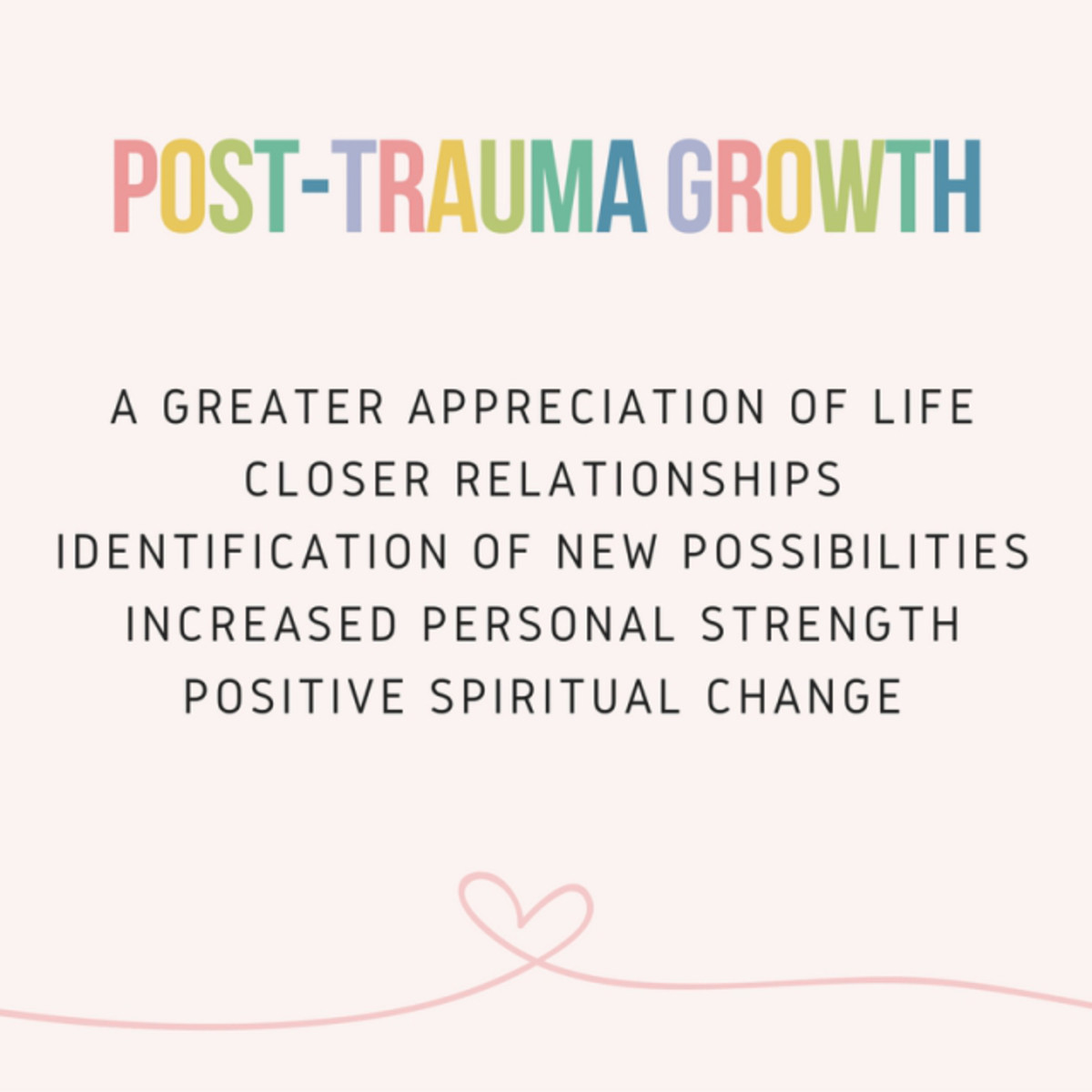- HubPages»
- Health»
- Mental Health»
- Anxiety Disorders
Post-Traumatic Stress Disorder

The Inner War
PTSD is a lesser known anxiety disorder gaining traction with the public as men and women of our armed forces physically return from the battle fields of the many wars now raging across the globe, only to find themselves locked on those battle fields in their minds. But it is not just soldiers who suffer from post-traumatic stress. Anyone experiencing a traumatic event in their life can potentially develop this disorder. A classic example might be someone who survives a car wreck:
You're driving late at night. You're tired and the roads are bare, the low visibility and quiet making it difficult to remain focused on the task at hand. A storm picks up, and heavy rain starts collecting on the windshield. You kick on your wiper blades, and the rattle of the droplets pounding the frame of your car is annoying, but keeps you awake. The visibility is even worse and you have to slow down, which you mentally note also gives you better stopping time on the slick roads. You're thoughts are on home - a warm bed and soft pillow with thick blankets you can curl under after dashing from your car to the door in the chill rain.
You're pulled from your thoughts by a sudden bang and your car rocks, veering unevenly to the right. Startled, you attempt to correct, only slowly registering that you must have popped a tire, but the wet roads put you into a skid. The flat tips over the curb and your car goes into a roll.
When it's all over, your banged up and dazed and can't remember much more than a chaotic tumble off into the ditch. Your car windows cracked and shattered, some of the flying glass cutting into your skin and leaving you with stinging scratches, and your air bags deployed with a shocking impact that (while keeping you safe from worse damage) left burn marks on your arms and a possible concussion. What's more, you've been left hanging upside down, held in by your seat belt, blood rushing to your head, and too disoriented to get yourself down. You pass out, enduring a cold, rainy, dark few hours before your vehicle is discovered and an ambulance arrives.
After an experience like this, who wouldn't be shook up? Who wouldn't be fearful of getting behind the wheel again or wary of driving at night or during a heavy rain? But for someone with post-traumatic stress, it's much more than that. During a traumatic event, when your life is threatened, the body naturally responds with hormones, emotions, and adrenaline meant to give you a boost and help get you through the danger so that you can survive. This response can sometimes leave an imprint - like a shock to the system that was just a little too powerful, and a vivid, detailed memory of the traumatic event is linked with that instinctive response.
The brain stores and locks away every detail, not knowing which details were important and which were not, and many of those details become "triggers" for the survival response. Sights, smells, sounds, physical sensations, all related to the trauma but separate pieces can now put the individual on edge in daily encounters and routines. A bang like the one heard when the tire popped might now set the blood pumping with adrenaline and the heart racing with fear. A rolling sensation might bring with it a sense of vertigo. Bug bites might feel like the sting of the glass cuts. Showers may remind you of the cold rain.
Someone who suffers from post-traumatic stress disorder is visited by their trauma again and again as they strive to simply go through their daily routines. Constant triggering of the body's survival mechanisms leaves this person tense, anxious, irritable, short-tempered, edgy, nervous, jumpy.... It is not something that is easily corrected, because it is not logical. It is a pure, instinctive, emotional response that has to be retrained with desensitization therapy in a safe setting with professional assistance.
PTSD is not just a soldier's difficulty. People who have never seen battle have seen trauma - many within their own homes. Domestic violence is a major contributor to the numbers of individuals suffering from post-traumatic stress. The instincts that helped these individuals survive turbulent times are now a detriment to their sanity, and the process of healing the damage done to the mind is usually life-long.








